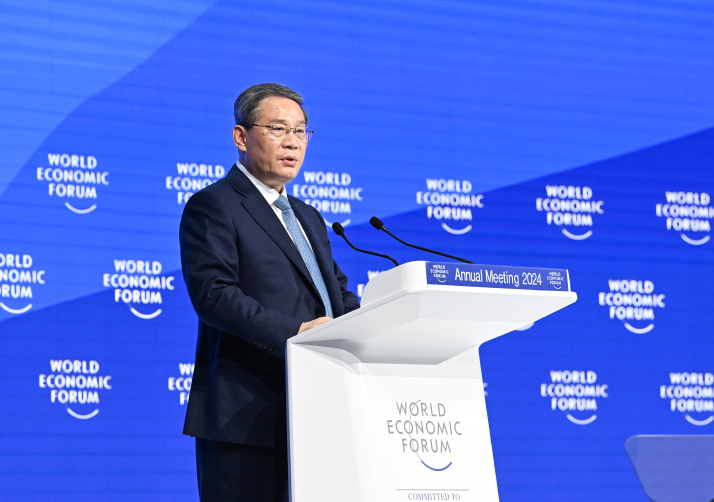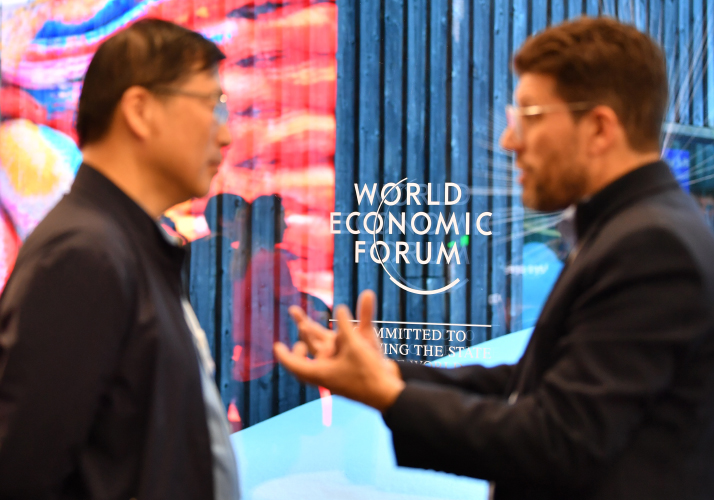
The prospects of a prolonged period of higher borrowing costs and tighter credit conditions present strong headwinds for a world economy that is saddled with high levels of debt but also in need of increased investment, the United Nations’ newly released World Economic Situation and Prospects report warned, adding that many developing countries, especially vulnerable and low-income ones, still have weak growth prospects.
In its recent Global Economic Prospects report, the World Bank forecast that global economic growth would slow for a third straight year to a “sorry record by the end of 2024,” hampered by tight monetary policies, geopolitical tensions and feeble global trade and investment.
According to the World Economic Outlook report released by the International Monetary Fund (IMF) last October, global growth is expected to average 3.1 percent over the five years between 2024 and 2028, the slowest rate in decades, and much lower than the 3.8 percent achieved between 2000 and 2019.
“Slowest rate,” “sorry record” and “headwinds.” These concerns have made the World Economic Forum (WEF) Annual Meeting 2024, held from January 15 to 19 at the ritzy Alpine town of Davos, Switzerland, even more relevant to the world, with talks on how to revive the world economy in the limelight. The Davos gathering is a forum for political and business leaders from across the world to discuss myriad of global challenges.
Ailing world economy
Factors such as debt crises, high inflation and interest rates, and weak trade performance have hampered global economic growth, WEF President Borge Brende said. The current total global debt accounts for more than 200 percent of the global GDP, the highest level in more than a century. “The situation is severe,” he added.
Growth in several large, developed economies, especially the United States, is projected to decelerate in 2024 given high interest rates, slowing consumer spending and weaker labor markets, the UN report said.
Short-term growth prospects for many developing countries—particularly those in East Asia, West Asia and Latin America and the Caribbean—are also deteriorating because of tighter financial conditions, shrinking fiscal space and sluggish external demand, it added.
Additionally, according to Ding Chun, a professor at the Institute of World Economy at the Shanghai-based Fudan University, the ongoing Palestinian-Israeli conflict, the Ukraine crisis, and other conventional and non-conventional security issues are dealing serious blows to the world economy.
Ding’s concerns echoed Brende’s. “We are seeing a very complicated security landscape and quite a fragile economic outlook,” he said.
Worse still, certain countries’ protectionist policies and practices, as well as their attempts to “decouple” and “de-risk,” have, to some extent, resulted in the loss of trust among economies, according to Ding.
“Decoupling and cutting off supply chains” is detrimental to the long-term interests of all countries, Chen Liming, the WEF’s Chair of Greater China, said.
Developed countries need overseas markets to translate their huge investment in scientific and technological innovation into good profits, and developing countries need to import technologies from developed countries to improve their productivity and people’s living standards, he explained, adding that such practices have caused many multinationals to suffer, and the average consumer is the ultimate victim.

Cooperation needed
On January 8, the WEF also launched the Global Cooperation Barometer to measure the state of global cooperation. The gauge indicates that global cooperation was resilient in multiple dimensions from 2012 until 2020, but overall cooperation declined from 2020 to 2022.
“With diminishing trust, political polarization and a volatile geopolitical landscape, the potential for cooperation to tackle global risks is under pressure,” the WEF’s Global Risks Report 2024 said.
Countries should rebuild trust and take strong and effective global measures to invigorate the sluggish world economy, founder and Executive Chairman of the WEF Klaus Schwab said. “We must rebuild trust—trust in our future, trust in our capacity to overcome challenges, and most importantly, trust in each other.”
“Trust is not just a feeling; trust is a commitment to action, to belief, to hope,” he added.
Chinese Premier Li Qiang, in his special address at the opening ceremony of the WEF annual gathering, proposed intensified efforts in five areas to rebuild trust, strengthen cooperation and promote global economic recovery, namely macroeconomic policy coordination, international industrial specialization and collaboration, international exchange and cooperation on science and technology, cooperation on green development, and North (developed countries)-South (developing countries) and South-South development cooperation.
Zhang Monan, Deputy Director of Institute of American and European Studies of the China Center for International Economic Exchanges, told Beijing Review that as the world urgently needs to fix global deficits in peace, development, trust and governance, China’s proposal offers a feasible solution within the framework of the current international system, which upholds multilateralism.
China’s role
When China’s representatives attended the WEF annual meeting for the first time in 1979, the country’s GDP represented about 2 percent of the world’s total. Today, China accounts for nearly 20 percent of the world economy.
According to the National Bureau of Statistics, China’s GDP posted a 5.2 percent year-on-year growth in 2023, reflecting a strong post-COVID rebound.
“The Chinese economy met the national target, which was set at around 5 percent, and actually exceeded it. That is good news for China and also good news for Asia and the world because China delivers one third of global growth,” IMF Managing Director Kristalina Georgieva told Xinhua News Agency in Davos on the sidelines of the WEF annual meeting.
“It showed the resilience of the Chinese economy,” Zhu Min, Vice Chairman of China Center for International Economic Exchanges and also former Deputy Managing Director of the IMF, said at a WEF session themed Recharging Growth in China, adding that the country’s consumption has rebounded and capital investment also recovered.
In a recent interview with Beijing Review, Enrico Letta, former Italian Prime Minister and President of the Jacques Delors Institute, a think tank on European affairs based in Paris, Brussels and Berlin, said, “I believe that China can make a positive, fundamental contribution to global growth. What we need is stability at the international level. That’s why China’s role can be significant.”
As the world’s largest developing country, China has been actively promoting the reform of the global economic and trade system and related governance frameworks. For example, in areas such as digital and green transformations, China is leading the process, Zhang added.
It has emerged as a world champion in green energy, achieving a remarkable surge in renewable capacity and playing a pivotal role in global energy cooperation, Fatih Birol, Executive Director of the International Energy Agency, told Xinhua, adding that China collaborates with a lot of countries, both developed and developing.
China can contribute to rebuilding trust because of its significant economic and trade heft and desire to build a more peaceful world, Brende said, adding that “the steps that China takes are incredibly important for the world.” –The Daily Mail-Beijing Review news exchange item




